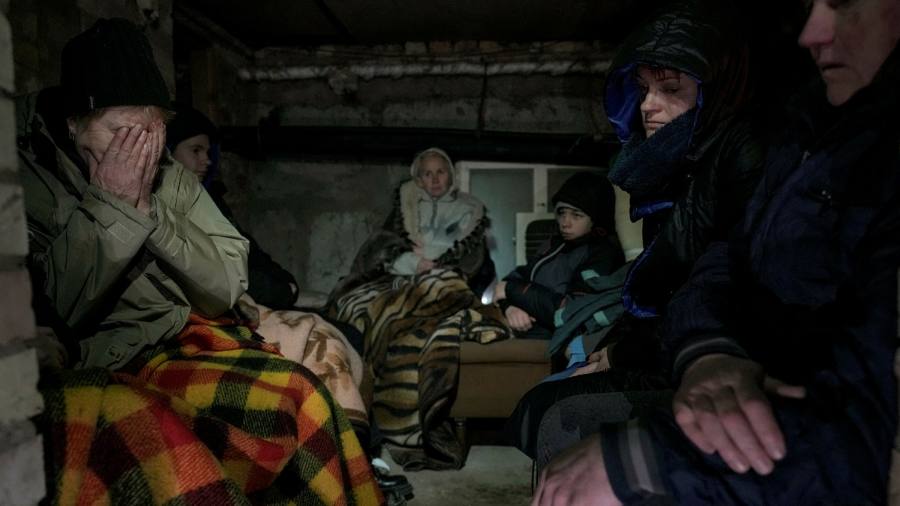Putin’s war on Ukraine is taking a grave human toll

Russian forces are deploying medieval siege tactics against their Ukrainian neighbors, encircling cities and cutting them off, then relentlessly bombarding them. Russian troops are accused of repeatedly violating ceasefires this weekend intended to allow evacuation of civilians. By Sunday, the UN human rights office put confirmed civilian deaths at 364.
President Vladimir Putin told his French counterpart, Emmanuel Macron, that Russia’s military operations would be won, “whatever happens”. This shows Putin’s callous contempt for civilians and international norms of war. Indiscriminate shelling later proved the point, as a nuclear power plant caught fire. Such reckless tactics are creating Europe’s worst humanitarian crisis since the second world war, within Ukraine and beyond.
An urgent priority is to set up humanitarian corridors in Ukraine. A tentative agreement last week offered some hope but that was dashed when Ukraine twice had to call off evacuations of Mariupol, alleging Russia had attacked civilians’ escape route. Essential supplies, including medicine, are running dangerously low in the worst-hit areas. Supply lines are disappearing as routes become too dangerous.
The situation is expected to worsen as the battle for key cities, including Kyiv, intensifies. Denied a swift victory, Russian forces are resorting to more ruthless measures. Their tactics have already sparked scrutiny from the International Criminal Court.
Those who have managed to flee such carnage face miles-long border queues in freezing conditions. Over 1.5mn Ukrainians have left the country since February 24, according to the UN, which forecasts as many as 4mn will flee in the coming months. Mostly women and children – Ukrainian men are now conscripted – they have been met with exceptional generosity by people in neighboring countries, particularly Poland and Hungary, countries whose governments are not normally equated with a magnanimous refugee policy.
But absorbing the biggest influx of refugees this century within Europe’s borders will take more than the kindness of strangers. A dual approach is required to protect civilians in Ukraine, and to ease citizens’ new lives outside its borders.
The EU has triggered an emergency plan to allow Ukrainians – who can already remain visa-free for three months – to live and work in the bloc for up to three years. That is a positive start, in contrast to the UK, which belatedly extended its offer to three years but only for Ukrainians with family members already in Britain.
An overarching EU strategy is still needed to determine how many can be absorbed into the jobs market, schools, housing and health systems. Inertia over a coherent strategy took hold during the Syrian refugee crisis and things have improved little since. A brewing disaster on the EU’s own border strengthens the case to share responsibility for refugees, with resources sent to frontline countries, and plans for better reception, processing and redistribution across the bloc.
This may prompt criticism of double standards: such largesse was not shown when Arabs or Africans fled conflict. There are also disturbing reports that non-white foreign students and immigrants to Ukraine have faced illegal discrimination at the border. But an orderly way of welcoming refugees, born out of a terrible crisis on its doorstep, could lead to a fairer system that would speak to the ideals of solidarity that underpin the EU – so attractive to Ukraine and so threatening to its enemy.
Source link



